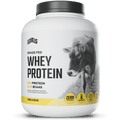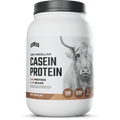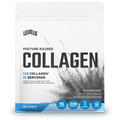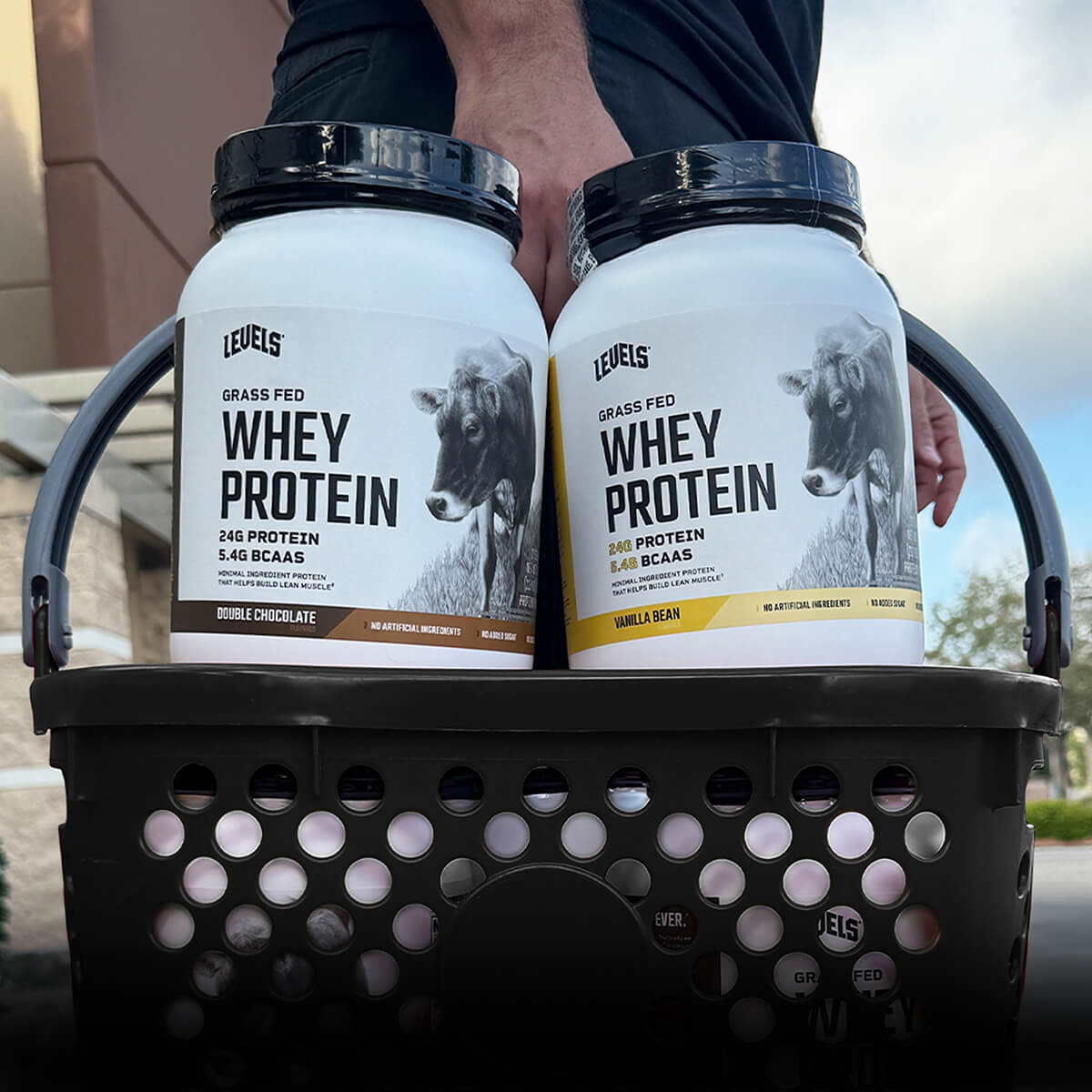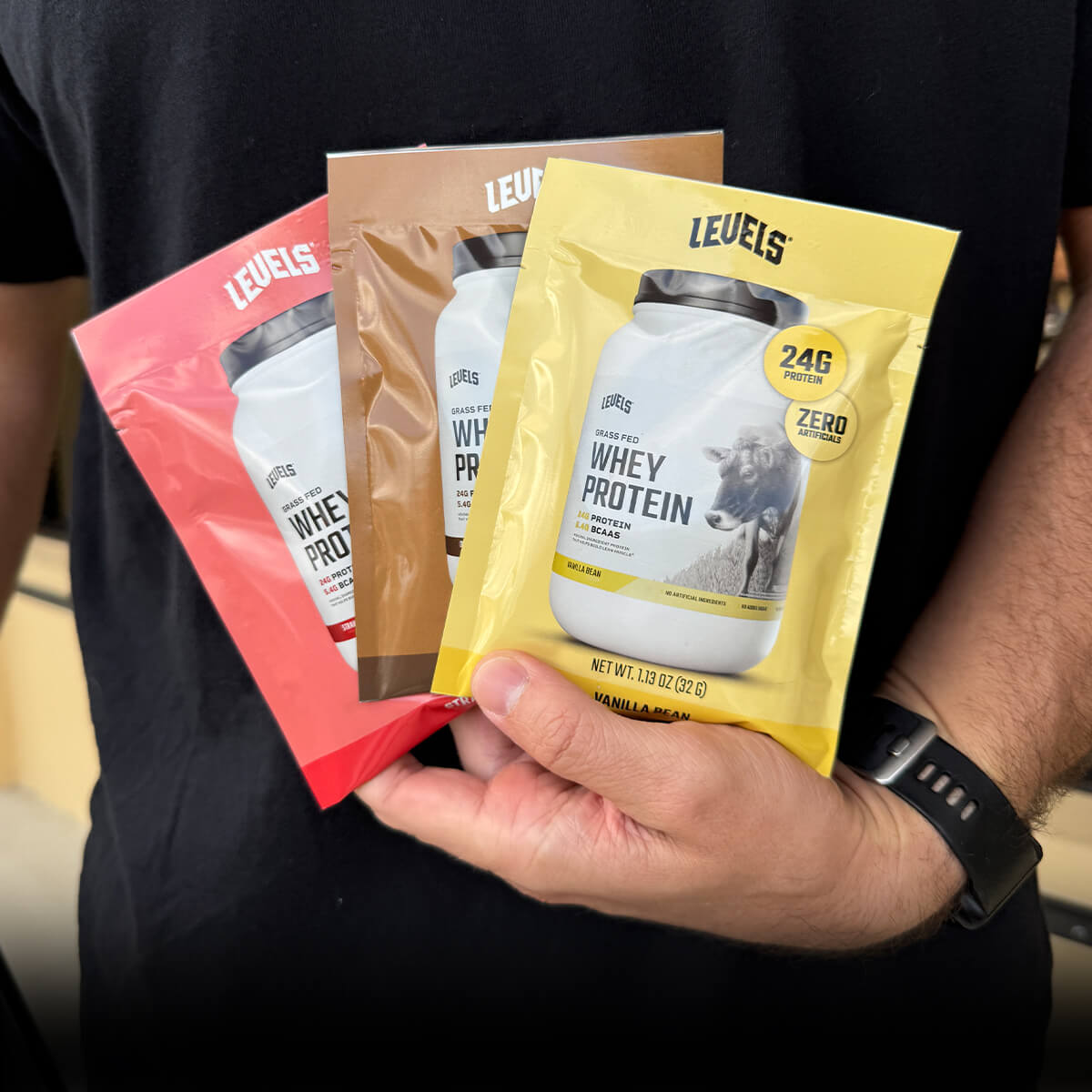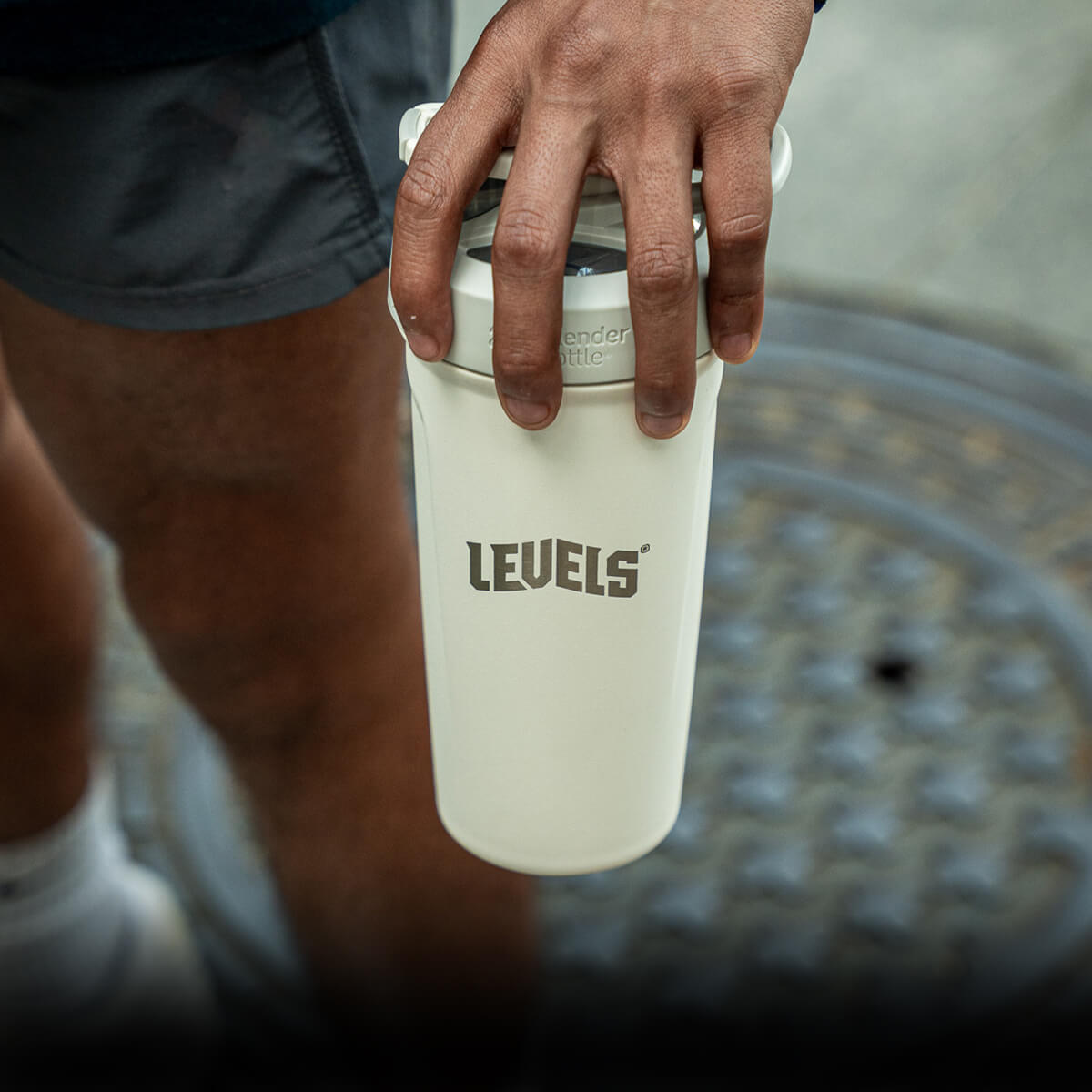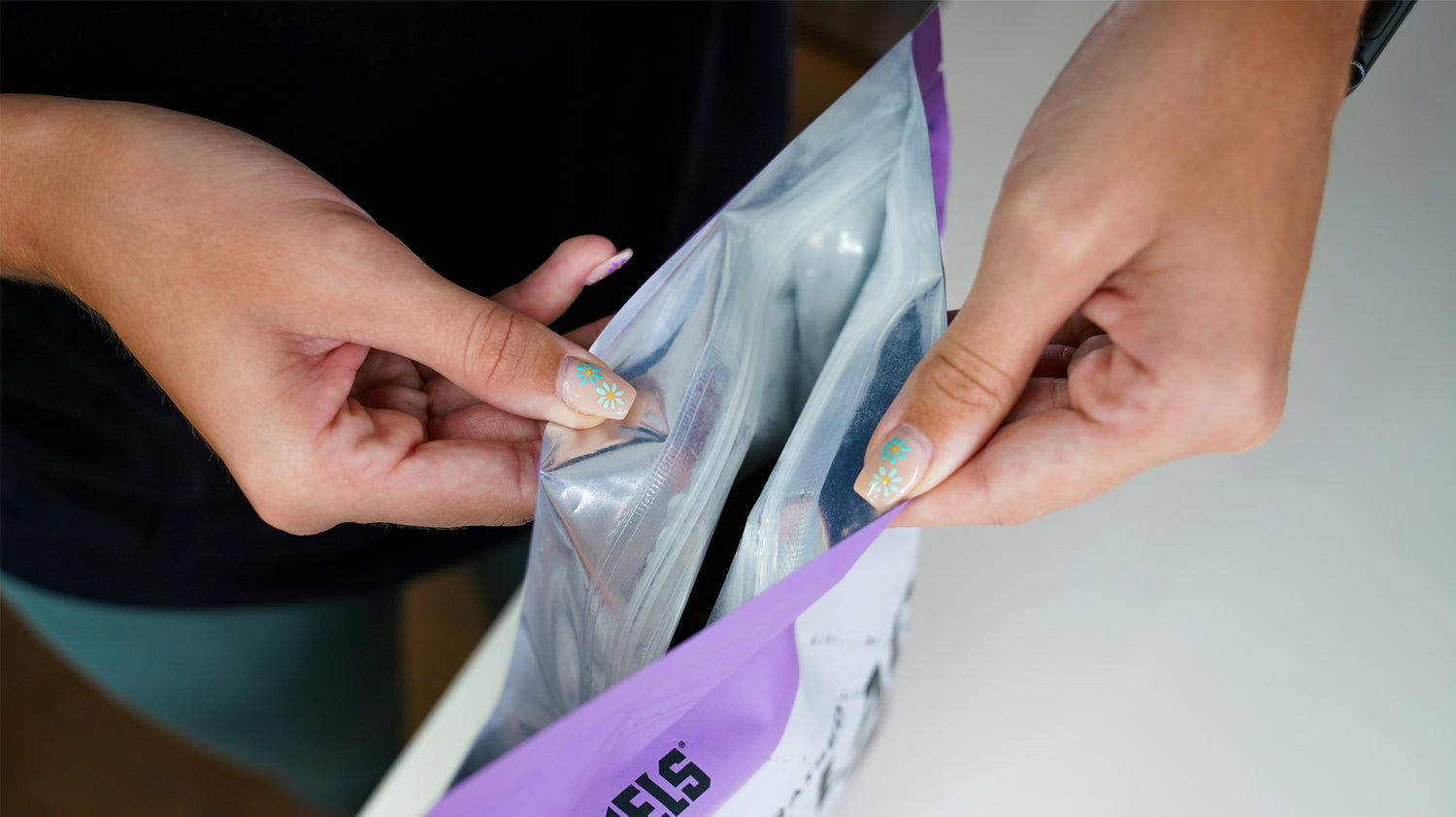People take collagen for healthier joints, skin, bones, nails, and more.
It’s a true multipurpose supplement, favored by athletes as well as people who care about healthy aging.
The popularity of this remarkable protein powder has grown dramatically in recent years thanks to solid support in peer-reviewed scientific journals.
But what about timing your collagen peptides for maximum impact?
Some people claim factors like the time of day, pre- vs. post-workout, and having an empty stomach are crucial to getting the most out of collagen supplements.
In this article, we go straight to the best scientific sources to examine myths and facts about collagen timing. By the time you finish, you’ll know the truth about taking collagen powder effectively to help you reach your goals.
What Are Collagen Peptides?
Collagen is a naturally-occurring protein in your body that’s extremely high in the amino acids glycine, proline, alanine, and arginine[*].
In fact, collagen is the most common protein in your body. Because it’s a key component of your skin, tendons, ligaments, and other connective tissues, it accounts for up to 40% of the total protein in your body[*].
Over time, aging reduces your body’s collagen production. Decreased collagen production may speed up normal wear and tear on skin and joints, leading to wrinkles and osteoarthritis[*].
But foods high in collagen can help boost your body’s collagen production[*]. Alternatively, your body can also make its own collagen by recombining amino acids from other forms of protein you eat[*].

Collagen peptides, also called hydrolyzed collagen or collagen protein powder, are a type of collagen supplement people use to boost natural collagen production.
Unlike the collagen in whole foods or in your body, collagen peptides go through a process called hydrolysis during manufacturing. In simple terms, the collagen protein is broken down into smaller chains of amino acids called peptides to enhance the rate of absorption[*].
Hydrolyzed collagen also mixes easily with cold water, making it easier to consume as a supplement compared to gelatin.
Who Should Take Collagen Protein?
Compared to other dietary proteins — even high-quality, complete protein sources like whey protein — collagen protein offers unique benefits.
Based on current scientific research, here are the best reasons to consider taking hydrolyzed collagen:
- To decrease joint pain associated with exercise or aging[*][*][*]
- For smoother skin with fewer visible wrinkles[*][*][*][*]
- Collagen may lower your appetite, which could assist with weight loss[*][*].
- For better sleep at night (thanks to the high glycine content of collagen protein powder)[*][*][*]
- Evidence suggests collagen supplements may help wounds and injuries heal faster[*].
If you’re still on the fence as to whether collagen protein powder is right for you, or want to learn more about how it might benefit you, check out What Is Hydrolyzed Collagen? Plus 7 Proven Benefits
Collagen Peptides Side Effects
According to a 2019 scientific review published in the Journal of Drugs in Dermatology, “Collagen supplementation is generally safe with no reported adverse events”[*].
Some people may find that hydrolyzed collagen causes gas, bloating, or other mild digestive side effects at first. If you experience an upset stomach or similar issues, try cutting your dose down temporarily and working back up to a full scoop (10 grams).

Finally, keep in mind that collagen is not a complete protein, meaning it doesn’t include all 9 essential amino acids (EAAs). Compared to complete proteins, collagen protein lacks tryptophan[*].
Therefore, unlike whey protein or most animal proteins, you can’t rely on it as your primary protein source.
But how much can you consume each day without developing an amino acid deficiency?
A 2019 study from the journal Nutrients says that as long as you also consume plenty of high-quality complete proteins, collagen can account for up to 36% of your overall protein needs[*].
Put differently, if you take in 150 grams of daily protein, you can supplement up to 54 grams of collagen each day with no problem.
What Is the Best Time of Day to Take Collagen
Should you take collagen in the morning or at night — or does the time of day even make a difference?
Currently, no study shows any definitive advantage to taking your collagen protein powder at one time of day compared to any other.
For the most part, existing studies don’t specify when participants took their daily collagen dose[*][*][*]. The chances are high that the researchers didn’t give any specific timing instructions, meaning that the individuals in the study probably took them whenever it was convenient.
Clearly, you can get great results taking hydrolyzed collagen at any time of day. So we recommend you simply take collagen protein whenever you find it most convenient or fitting for your goals.
Some people love the idea of a collagen protein shake or collagen chia pudding for breakfast as a healthy way to start the day.

For others, a dose of collagen mid-afternoon on an empty stomach could be the perfect solution to reduce hunger or cravings[*][*].
Lastly, if you want to sleep better, a 10-gram scoop of collagen contains approximately 2.5 grams of sleep-enhancing glycine[*][*][*]. It should come as no surprise that taking collagen at night is necessary to maximize potential sleep benefits.
The takeaway? There’s no one-size-fits-all schedule for collagen supplements, but there may well be a best time for you based on your individual needs and preferences.
Should You Take Collagen Peptides Before or After Training?
At Levels, we regard whey protein as the undisputed champ for building muscle and speeding recovery. And our position is supported by a mountain of evidence[*][*].
Even compared to other complete proteins like casein protein, pea protein, and soy protein, whey comes out ahead for pre- and post-workout usage.
And keep in mind that, unlike whey protein, collagen protein is not a complete protein. That means it’s unlikely to offer anywhere near the same muscle-building and recovery benefits as whey.

Collagen supplements also don’t have very much evidence behind them for increasing muscle protein synthesis and healing damaged muscles.
Admittedly, one study of physically active men found 20 grams a day of collagen protein decreased soreness and improved performance compared to a placebo[*].
But it’s the only one of its kind, and that study didn’t compare collagen versus whey or other high-quality proteins.
Unless some groundbreaking new evidence comes out, we recommend most people stick with whey protein for the best workout shake.
However, there may be some cases where you should consider using collagen peptides as a workout supplement. For example, if you’re injured and your workouts mainly consist of rehab movements, there’s a possibility collagen protein powder could speed up your healing process[*].
If you opt to use collagen to amp up healing around rehab, there may be a slight advantage to taking it 15-30 minutes pre-workout. That way, you’ll have the highest levels of collagen peptides circulating in your body as you perform your rehab exercises[*].
But if you are using collagen protein shakes for general recovery purposes, there’s probably no real difference between drinking them before or after you exercise. To learn more about why that’s the case, read Protein Shake Before or After a Workout? What Science Says.
Does Collagen Need to Be Taken on an Empty Stomach?
Current studies don’t provide much direct evidence about how an empty or full stomach affects collagen absorption.
We can assume most studies favor an empty stomach, but similarly to the time of day, they don’t actually control for this variable — which means we can’t draw a firm conclusion from the data.

However, some evidence suggests that carbs and fats can slow down protein absorption, which may also be true of collagen protein[*].
It’s also possible that other protein sources taken along with collagen supplements could compete for absorption in your small intestine (and, as a result, limit or slow down the uptake of collagen peptides)[*].
We recommend that if possible, you wait at least 1-2 hours after a small meal and 3-5 hours after a moderate- or large-sized meal before taking your collagen protein. That way, your body will have a “clean slate” to quickly and efficiently absorb the collagen peptides, and there won’t be any competition with other types of protein.
But if you can’t manage an empty stomach, don’t sweat it. You can definitely drink your collagen shake anyway and still expect a high degree of benefit.
Conclusion: How to Take Collagen Powder Effectively
The majority of studies use 10 grams or more of collagen protein per day. At Levels, we recommend you start with a single 10-gram dose per day, then consider adding additional doses based on your results.
There’s not necessarily a best time of day to take collagen protein, at least not according to current studies.
However, be sure to consider your personal goals. For example, if one of your reasons for taking collagen is to increase your sleep quality, timing it before bed is wise.
Otherwise, you can take your collagen supplements at the time that feels most convenient for you.
While we recommend whey over collagen for a recovery protein shake, it could make sense to use collagen pre-workout if you’re rehabilitating an injury. But once you heal up, you should probably switch back to whey protein around workouts.
And while there’s no proof (yet) that collagen is best on an empty stomach, a strong possibility exists that taking other protein sources before or with collagen could reduce the absorption.
If possible, wait a few hours after your last meal or protein shake before taking collagen for best results.
